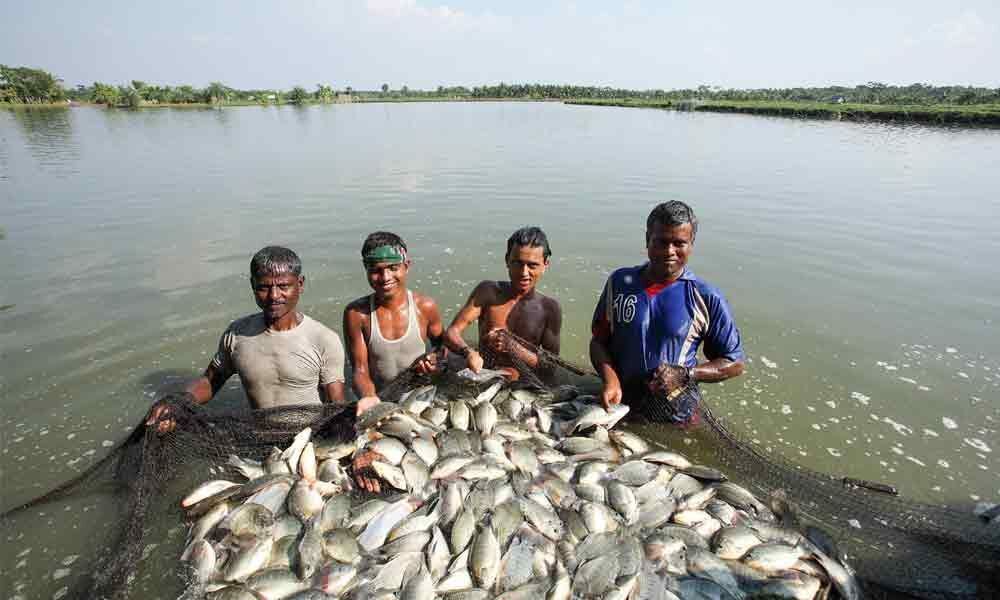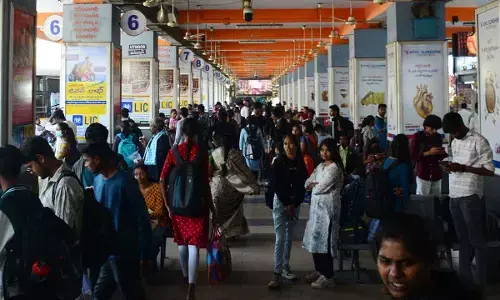Fish farmers all smiles as aquaculture goes hi-tech

- The system, an intensive fish culture pond, enables high-density stocking of fish in cages
- The system has been inaugurated at the NIRDPR’s Rural Technology Park, and it was established with the funding support of the NFDB
Hyderabad: National Institute of Rural Development and Panchayati Raj (NIRDPR) and National Fisheries Development Board (NFDB) joined hands to promote Intensive Fish Culture Cages to help farmers enhance income generation.
As part of the initiative, the NIRDPR is working on new technology in aquaculture to help double the income of Indian farmers. The Institute has recently established a 'Backyard Re-circulatory Aquaculture System' developed by Cochin University of Science and Technology, at NIRDPR's Rural Technology Park in Hyderabad.
According to the NIRDPR, the system, an intensive fish culture pond, enables high-density stocking of fish in cages. This would allow off-setting of the load by stocking different varieties and sizes of fish in smaller cages in a pond.
Since the water requirement for this system is quite low, the high-density stocking of fish in different cages enables flexibility in managing a fishpond.
This system, inaugurated at the Institute's Rural Technology Park, was established with the funding support of the NFDB. Fish varieties that can be grown in the system include Tilapia, Pangasius, Murrel and Pearl spot.
The economics of growing Genetically Improved Farm Tilapia (GIFT) in the pond, for a stocking period of 120 days over three cycles per year, demonstrates that an average monthly return of Rs 25,750 can be expected from fish culture.
Speaking about the benefits of this innovation, Dr W R Reddy, Director General, NIRDPR said, "we can only double the income of farmers by promoting integrated farming practices.
Such technology-backed smart farming solutions will encourage youth to undertake farming activity as an occupation."
The aquaculture system can act as a source of additional income for farmers located even in low water availability areas, helping them double their income.
In addition, the sludge periodically pumped out of the pond can be utilised to grow agriculture crops without the addition of chemical fertilisers.
Given that the intensive fish culture does not require to be limited in geography to coastal areas, it can also be used in inland areas, further confirming the flexibility of the system.
The Rural Technology Park at NIRDPR will demonstrate the functioning of the system and provide necessary training to farmers, self-help groups (SHGs) and youth who are keen on undertaking fish culture for enhancing their income.
For this, the NIRDPR is establishing modules for the training programme on the Aquaculture System for promoting it as a sustainable mode of income generation through integrated farming.
In addition, as the system requires technical supervision in the construction process, technical training for fishery graduates who can become certified promoters of this technology to farmers is being considered in consultation with NFDB











